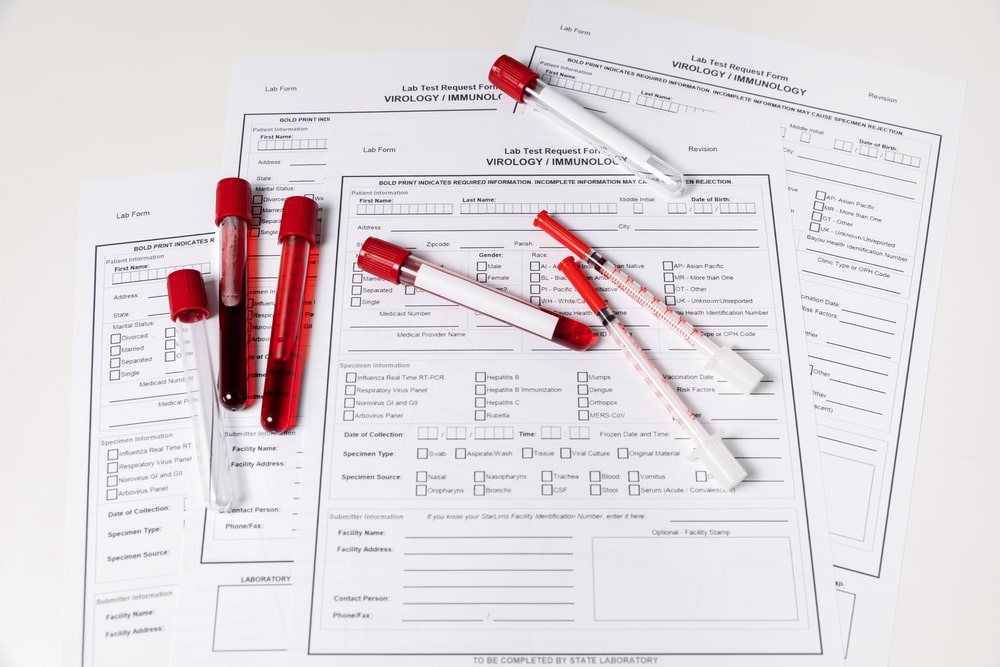Preparing for surgery involves several steps, including undergoing blood work tests. These tests ensure safety during the procedure and optimize your post-operative recovery. In this blog, we’ll delve into the significance of these tests before surgery, what they look for in blood tests before surgery, and what specific markers healthcare providers look for.
Why Blood Work Tests Before Surgery Are Important
Before any surgical procedure, our urgent care specialists conduct blood work tests to assess various aspects of your health. Blood work tests help in:
Identifying Underlying Health Conditions:
These tests can reveal underlying health issues such as diabetes, anemia, and liver or kidney problems. Identifying these conditions beforehand allows the medical team to take appropriate measures to manage them during surgery.
Assessing Blood Clotting Ability:
Blood clotting is crucial during surgery to prevent excessive bleeding. Blood work tests assess clotting factors to ensure that your blood can clot effectively during and after the procedure.
Evaluating Organ Function:
Liver and kidney function tests are commonly included in pre-operative assessment. These tests assess how well these organs function, as impaired liver or kidney function can affect your body’s ability to metabolize medications used during surgery.
Determining Blood Type and Compatibility:
Knowing your blood type is essential if you require a blood transfusion during surgery. Pre-surgery blood work includes blood typing to ensure compatibility with donor blood if needed.
What Blood Work Tests Entail

Also known as blood tests or blood panels, these are essential diagnostic tools used by healthcare providers to assess various aspects of a patient’s health. Here’s a detailed look at what blood work tests entail:
1. Complete Blood Count (CBC):
Red Blood Cell Count (RBC):
It determines the blood’s red blood cell count. Abnormalities in RBC count can indicate conditions such as anemia or polycythemia.
White Blood Cell Count (WBC):
Determines the number of white blood cells crucial for immune function. Elevated WBC count may indicate infection or inflammation.
Platelet Count:
It is crucial to assess the number of platelets involved in blood clotting. A low and high platelet count may indicate a clotting disorder.
2. Basic Metabolic Panel (BMP) or Comprehensive Metabolic Panel (CMP):
Glucose:
Measures blood sugar levels, essential for diagnosing diabetes or assessing glucose metabolism.
Electrolytes (Sodium, Potassium, Chloride, Carbon Dioxide):
Analyze the body’s electrolyte balance, which is necessary for healthy neuron and muscle function.
Kidney Function Markers (Creatinine, Blood Urea Nitrogen):
Assess the health of the kidneys by measuring waste product levels in the blood.
Liver Function Tests (AST, ALT, ALP, Bilirubin):
Indicators of liver health and function that help diagnose liver diseases or assess liver damage.
3. Coagulation Studies:
Prothrombin Time (PT):
Calculates the duration needed for blood to clot. Elevated PT may indicate clotting disorders or liver dysfunction.
Activated Partial Thromboplastin Time (aPTT):
When employing the intrinsic route, it is critical to ascertain the duration of blood coagulation. These are used to monitor patients on anticoagulant therapy or diagnose clotting disorders.
International Normalized Ratio (INR):
Standardizing PT results is significant for patients on anticoagulant therapy like warfarin.
4. Lipid Panel:
Total Cholesterol:
The total cholesterol content of the blood, including the good (HDL) and bad (LDL) cholesterol, must be determined.
HDL and LDL Cholesterol:
Assess the levels of high-density lipoprotein (HDL) and low-density lipoprotein (LDL) cholesterol, which are important markers for cardiovascular health.
Triglycerides:
It checks the blood’s triglyceride levels, which are a kind of fat.
5. Blood Typing and Rh Factor:
Blood Group Typing (A, B, AB, O):
Determines the specific blood type of an individual, which is crucial for blood transfusions to ensure compatibility.
Rh Factor:
It is crucial to ascertain if a person’s blood type is Rh-positive or Rh-negative before administering blood transfusions.
6. Additional Tests:
Depending on the patient’s medical history and the nature of the surgery, additional tests may be included in the blood work panel. These may include thyroid function tests, autoimmune markers, viral screening, or specific tumor markers.
If any concerning results arise from your blood work, our team at Advanced Urgent Care in Pasadena is committed to providing the necessary support and healthcare to address and improve your condition, ensuring you’re in optimal health before your surgery.
Do They Test for STDs Before Surgery?
The need for STD testing before surgery varies depending on factors such as the type of surgery, medical history, and individual risk factors. While routine STD testing is not typically part of pre-surgery blood work, healthcare providers may recommend it in certain situations:
- If you have symptoms suggestive of a sexually transmitted infection.
- If you have a history of STDs or high-risk sexual behavior.
- If the surgery involves procedures that may increase the risk of transmitting or exacerbating an existing infection.
- It’s essential to discuss any concerns or relevant medical history with your healthcare provider.
Conclusion: Ensuring Optimal Surgical Outcomes with Comprehensive Blood Work Tests
By assessing critical markers in the blood, healthcare providers can identify underlying conditions, monitor treatment effectiveness, and guide patient management strategies, including pre-surgical assessments, to ensure optimal surgical outcomes and post-operative recovery.
Advanced Urgent Care in Pasadena offers comprehensive urgent care blood work tests, including CBC, BMP/CMP, coagulation studies, lipid panels, blood typing, and additional tests, ensuring thorough pre-surgical evaluations.

